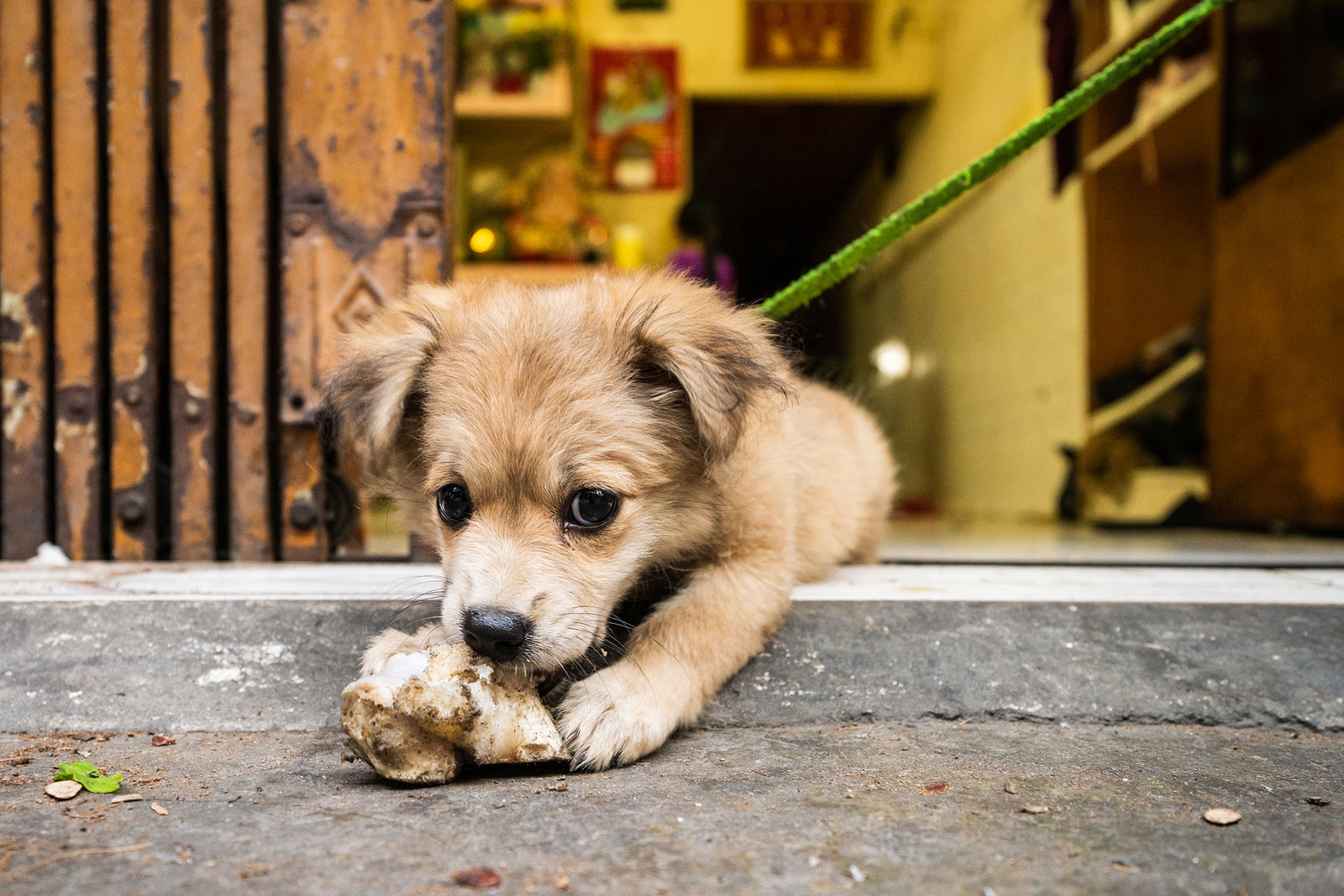Even before the pandemic, pet shelters struggled to find the time, money and resources to provide adequate care for their resident animals. But as the COVID-19 crisis worsens, rescue groups are facing new dilemmas due to lockdown-driven causes.
Anyone who has pets and sees them as a part of their family has known the joy of welcoming furry friends into your home, the anxiety of seeing them sad and unwell, and the grief of having to say goodbye to them for good.
At dog and cat rescue centers, volunteers experience this emotional roller coaster with not just one, but hundreds of different animals. The nature of the job requires caretakers to commit not just time and effort, but also mental preparedness for any situation. But little could have prepared them for the challenges that arose when the entire city shut down.
A pandemic conundrum

Faced with staff, medical and food shortages, volunteers struggle to provide adequate care for their rescues. Photo courtesy of SGT.
Uyên Như, a key member of Saigon Time (SGT), an established dog and cat rescue center in Saigon, tells Saigoneer that logistics are their biggest obstacle, as they have to find ways to deliver food to their District 6 facility, which houses about 80 rescue animals. The group stocked up in anticipation of the closure, but even their remaining supplies are running low.
Meanwhile, in Hanoi, animal rescue group Hanoi Pet Adoption (HPA) has secured enough food and essential goods for their animals and staff, but is concerned about the travel restrictions, which might prevent them from getting medical attention for at-risk animals.
“This season’s weather is really volatile and pets often have respiratory illnesses because of that. We try to keep our vets informed by giving them daily updates, and if push comes to shove, they will have to travel here themselves to give treatment. We’re just hoping that none of our animals will get sick during this time,” says Linh, a representative of HPA. “We have also been receiving a lot of dogs and cats that were abandoned by their owners due to their health issues.”
In Vietnam, getting pets from breeders and pet shops has become a common practice. Unfortunately, not all buyers are adequately equipped to take care of their animals. In many cases, these cats and dogs are passed from one owner to another, then deserted once they become too sick or expensive to keep. “Adoptees with acute illnesses require extensive and costly medical care, so we have to rely on sponsors to maintain our operations,” Linh continues.

The number of animals abandoned by their owners due to their illnesses has increased since social distancing began. Photo courtesy of HPA.
The months-long lockdown has also impacted the income of many, including pet owners who are forced to give up their pets. In normal circumstances, rescuers would be able to pick them up, but with current movement restrictions, these animals have to rely on the kindness of strangers.
Như says: “Currently, Saigon does not allow travel between districts, so we have to ask acquaintances who live in those specific areas to take care of the animals for us. When the blockade is lifted, we will bring them back to the shelter.”
Love thy neighbor and thy neighbor's dogs
When Directive 16 was issued, many volunteers decided not to return home, and remained at their shelters. “Our oldest volunteer is in his 60s, but he’s very dedicated. He has been doing everything by himself these days, picking up strays on the streets, taking them to the clinic, then bringing them back to our shelter on Tu Liem Street. He has inspired all of us to overcome these tough times," Linh says of the volunteers at HPA.

Cats are free to roam at HPA's shelter. Photo courtesy of HPA.
Như and her husband were separated when they divided the work to manage the shelter’s two locations in District 6 and Binh Chanh District. The couple has been doing relief and adoption work since they started dating and has donated nearly all of their resources to protecting animals. In 2017, Như and her husband postponed their wedding when some dogs at their shelter simultaneously contracted parvo, a dangerous intestinal disease. The couple ended up using all of their wedding savings to treat their rescues.

Shelters are calling on members of the community to take care of stray cats and dogs in their neighborhood during social distancing. Photo courtesy of HPA.
However, the efforts of volunteers alone are not enough. The shelters are in dire need of community support to be able to save dogs and cats in each district and area.
Linh says: “When you see a stray wandering in your neighborhood, and can afford to help, please text or call us immediately. Because many veterinary clinics are closed or located in other locations, we may have to ask you to help keep the animals for a few days before transferring them to the clinic.” Rescue groups are also urging community members to help stray cats and dogs survive by placing food and water in front of their doors.

“If you can’t afford to raise these animals, you can still leave some food outside. It’s like a bird feeder, but for dogs and cats,” HPA. Photo by Nguyễn Thu Hường.
Apart from the animals’ physical health, shelters are also paying heed to their psychological wellness, especially when they are just separated from their owners. “There was a patient who got infected and taken away so suddenly that his dog was still chained up to the motorbike for days. The dog was taken to the police station, and they rang us up. The poor baby missed his owner so much he stopped eating. I'm trying to contact the owner so they can at least see each other's faces," Như says.

The canine residents at HPA are very fortunate to still be able to exercise outdoors regularly thanks to the shelter’s spacious yard, where they can enjoy their daily sun bath and race. Photo courtesy of HPA.
When the pandemic is over, this special rescue will be sent back to his owner again, she adds: "Our little baby is very well taken care of. His fur is shiny and mite-free, and he’s being energetic again."
Both SGT and HPA provide spacious enclosures for dogs of all sizes to keep active during the lockdown. “But at HPA's shelter in Truong Chinh, most of the dogs are small and paralyzed, so they don't need too much space. Instead, we have a paved yard for them to sunbathe in and race in wheelchairs every day,” Linh affirms.
Readers can donate directly to HPA and SGT to cover daily and medical expenses for rescue animals. The list of sponsors is regularly updated on their Facebook pages for transparency. In addition, HPA is currently looking for volunteers to assist in cleaning the shelter on Truong Chinh. More information can be found here.















